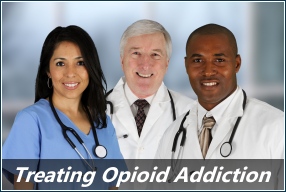 The science of treating opioid addiction has become increasingly popular in both medical circles and in the addiction treatment community.
The science of treating opioid addiction has become increasingly popular in both medical circles and in the addiction treatment community.
For decades, medical professionals and even popular recovery organizations did not quite understand how giving an opioid addict a replacement medication could actually facilitate recovery.
Part of the dilemma was that those who defined “recovery” did so using an old school philosophical approach originally crafted for alcoholism. But science has taught us that not all addictions are exactly the same. While there are certainly commonalities between the various substance use disorders, there are very important distinctions and differences which affect the recovery process.
You cannot prescribe a medication that is effective with depression, and expect that same medication to resolve schizophrenia or an anxiety disorder. While they are all mental health disorders that can debilitate a patient, there are critical differences between these disorders and in the overall treatment plan for addressing each one.
Similarly with addiction, science is teaching us that a one-size-fits-all approach to addiction recovery is detrimental and often unproductive.
With opioid addiction in particular, the disease progression is quite unlike most other addictive illnesses. While the medical profession has evolved that understanding, the recovery community and general society has at times struggled to comprehend the necessity of medication-assisted treatment for the opioid addicted.
Physicians, Nurse Practitioners, PA’s, Nurses, and Counselors all play a part in educating patients, their families, the community, and government on the key role that medication plays in the successful management of an opioid use disorder. Methadone, subutex, suboxone, vivitrol, and other medication choices make the difference between recovery success and repeated recovery failures.

 Recovery from opioid addiction initially centers around physical stabilization: specifically the management of opioid withdrawal. This is an essential step for the vast majority of opioid addicted people seeking help. Research has shown a 90% failure rate for opioid treatment programs that do not offer medication assistance.
Recovery from opioid addiction initially centers around physical stabilization: specifically the management of opioid withdrawal. This is an essential step for the vast majority of opioid addicted people seeking help. Research has shown a 90% failure rate for opioid treatment programs that do not offer medication assistance.


